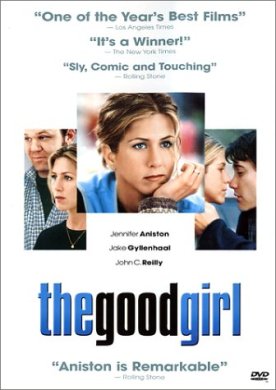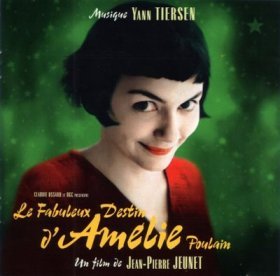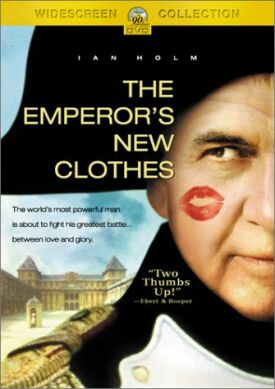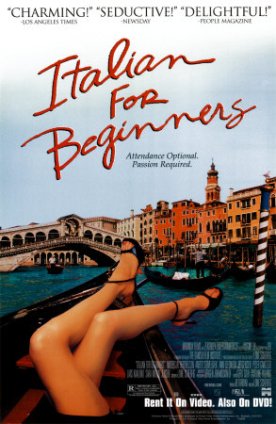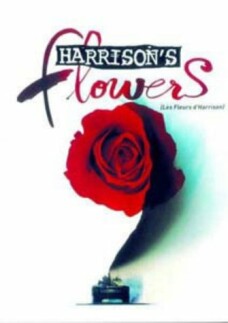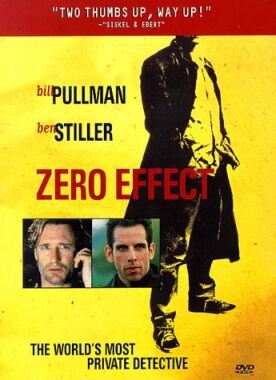Good Girl, The
There is a lot to like about The Good Girl, which comes from the same team — writer Mike White and director Miguel Arteta — that produced Chuck & Buck two years ago. You might almost say that it does for Texas what Fargo did for Minnesota, except that the condescension with which White and Arteta regard the Texans is more offensive than that of the Coen brothers for Minnesotans. You can tell by the sly literary references to high-brow novels about adultery or fatal love that are supposed to go over the heads of these Texan sons of toil.
Justine Last (Jennifer Aniston) works in the make-up department at the Retail Rodeo, a Wal-Mart style discount store, and dreams of the romance that is missing from her relationship with her husband, Phil (John C. Reilly), a house-painter who spends all his time smoking pot in front of the TV with his cretinous friend and work-mate, Bubba (Tim Blake Nelson). “As a girl you see the world as a giant candy store, filled with sweet candy and such,” says Justine’s voiceover as we are being visually introduced to the dreary Retail Rodeo. “But one day you look around and see the world as a great prison.” Not only is it a prison, but she is on death row, she imagines, and she spends her time planning her escape.
Naturally enough, this takes the form of an affair with a romantic youth, who shortly turns up in the person of Holden Worther (Jake Gyllenhaal), a college drop-out living at home with his parents, who is a fellow employee of the Retail Rodeo. Holden, whose real name is Tom (“It’s my slave name. Holden’s what I call myself”), fancies himself as a writer in the manner of J.D. Salinger and so has re-christened himself after the hero of Catcher in the Rye. Like most Salinger imitators, he is a terrible writer.
This is the film’s best idea, since it is so much a matter of course in the movies that we are asked to identify ourselves with young writers — to say nothing of the yearnings expressed in voiceover narrations. Accordingly, it is with a real shock that we find ourselves, before long, looking back on Tom/Holden as a dangerous idiot and Justine’s supposed awakening to new life with him as her lover as empty, hollow and both hilariously and horrifyingly foolish.
As it is happening, of course, we are meant to take seriously her intimate voiceover confidences about how, for instance, “after living in the dark for so long, a glimpse of the light can make you giddy” and how not she but you in her place would suddenly have the sense of “a secret fate calling you” a “secret message” whispering: “Is this your last best chance? Are you going to take it? Or are you going to the grave with unlived lives in your veins?”
You have to be a pretty sophisticated movie moralist not to fall for that kind of pleading — and even to get the full savor of comic self-delusion in it. And our falling for it is meant to be part of the process by which it is ultimately discredited, along with the imagery of imprisonment and escape with which the film begins and which is so familiar from other cinematic celebrations of romantic youth and female liberation, particularly when this is accomplished by means of adultery. Even the partial rehabilitation of Phil, who turns out to be even stupider than Bubba but yet a pretty decent guy, may not be pushing things too far, though the balance between comedy and seriousness is sometimes difficult to sustain.
Of the former, there is far too much to detail, though Bubba’s attempt to blackmail Justine into sleeping with him cannot go without a mention. Telling her that he had been on the point of giving up his life’s dream — the dream of being Phil — Bubba says excitedly: “And then, last week, a door that had been shut flew wide open. The sound of you making love to another man who wasn’t Phil was like a shout in the ear from God himself,” he says. All his “idealism” about Phil disappeared. “Phil was no superman, just a cuckold and a fool. And that was beautiful, don’t you see? This is my chance for liberation.”
Justine, flabbergasted, replies that “one person’s liberation is another person’s — badness.”
“You’ve got your choice to make,” says Bubba, getting down to business. “Destroy your marriage and break your husband’s heart, or have sex with me right now.”
But the serious side of this burlesque of popular romanticism too often spills over into a patronizing contempt for these Texan low-lifes. Mike White himself plays Corny, a security guard at the Retail Rodeo and an intolerably smug Christian, as if to remind his audience that this send-up of adulterous passion is not to be construed as being in any way an endorsement of the Seventh Commandment. It’s a shame that someone so clever in exploiting Hollywood clichés should not have recognized this anti-religious prejudice as being one of the worst of them.
Discover more from James Bowman
Subscribe to get the latest posts to your email.

